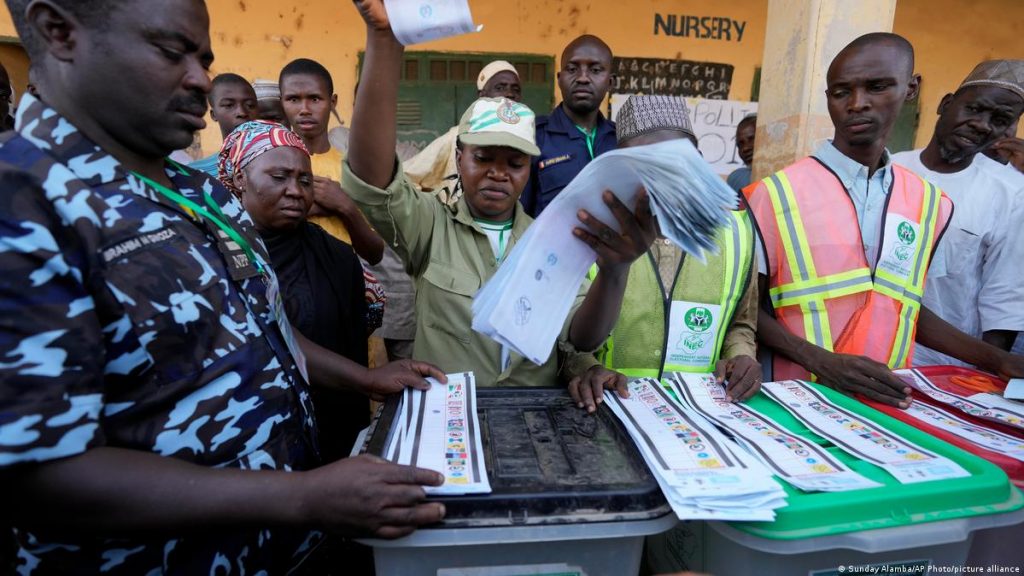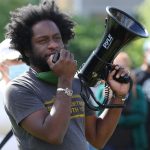Nigeria — Africa’s most populous country and largest economy — held its presidential election on February 25. At the time of writing, votes are being counted in a process which could take days. This is no ordinary election for Nigeria, coming at a time of unprecedented crisis of neoliberalism which touches every part of the globe.
In Nigeria, the crisis in particular has opened space for a challenge to the two main political parties, the Peoples Democratic Party (PDP) and the All Progressives Congress (APC).
The main story of the 2023 presidential elections has been the rise of Peter Obi, who ran as the candidate of the tiny Labour Party. Obi has become a serious contender in a country where serious third-party challengers are unheard of. He has done this by galvanizing the country’s youth, most of whom have come of age in the midst of deepening social and economic crisis in the region.
A Politicized Youth
While most analysts and reporting focus on Obi himself, it could be more accurate to say that the youth behind Obi’s campaign pose the main challenge to the traditional capitalist parties. Like many other countries in Africa, Nigeria’s population leans young: half of the country is under 19, with 60 percent under 25. However, due to the lack of economic opportunity and instability, many young people leave the country to search for economic opportunities elsewhere.
The role of the youth in Obi’s campaign and in Nigeria’s election overall must be understood in the context of the #EndSARS movement which sought to abolish the notorious SARS police unit. The movement was inspired in part by the 2020 Black Lives Matter uprising in the United States, but was shut down by extreme violence from the state and extralegal forces such as gangs. Still, this movement played an important role in politicizing many young people who now make up Obi’s base.
Obi, however, is not new to politics or truly independent of capitalist interests. He served as governor of the state of Anambra for decades as part of the capitalist PDP party and is a successful businessman. He only joined the Labour Party to become their presidential candidate. Prior to his political career, he was the chairman of the private bank Fidelity Bank Nigeria, and held leadership positions at other banks and corporations. Obi’s ties to the ruling class places the need for political independence of the working class, youth, and oppressed.
Obi represents the co-optation of the popular discontent of the youth and workers and funnels it into the campaign of a capitalist politician who was part of the political establishment. In this way, he cannot offer a path out of the many crises that have kept young people in Nigeria dejected for so long. Whether or not Obi wins and capitulates to the establishment he ran against, it is likely that many of the young people who made up his campaign will draw conclusions as a result of this election. The lessons these young Nigerians take could be a determining factor in how class struggle develops in the country in the years to come.
After the Election
An important part of this unique electoral situation is the divisions that exist within the ruling class of Nigeria and their different approaches to dealing with the country’s crises. But whoever wins the election, these crises are likely to get worse absent an independent working-class position which mobilizes Nigeria’s youth.
The growing economic inequality and corruption in the country has created an important layer of discontent and class struggle, a situation further exacerbated by a growing economic crisis. The most recent expression of that economic crisis is the situation with the redesign of the naira, the Nigerian currency, which has created a cash crisis that is hitting poor Nigerians very hard. There is also widespread violence in different regions of Nigeria, including conflict between Nomadic herders and farmers, extremist groups in the North, and bandits which kidnap people for ransom.
Of course, this violence and crisis are the results of colonialism. And even today, the influence of imperialist powers on Nigeria keeps the country from being able to resolve its crises. The United States is the largest foreign investor in Nigeria’s economy. Through AFRICOM, the U.S. has also deepened military ties with the country. In this way, Nigeria is essentially a semi-colony of the United States, meaning that any move by Nigerian capitalists to establish greater independence for their own economic interests can be easily shut down.
Revolutionary socialists in the United States must denounce U.S. imperialism’s presence and exploitative relationship with the Nigerian economy and people. The United States’ imperialist policy in Nigeria is a large part of the economic inequality that exists in that society. We stand with the working class, youth, and oppressed of Nigeria without giving support to petty bourgeois nationalist figures with anti-imperialist rhetoric that is conciliatory to the Nigerian capitalists.












